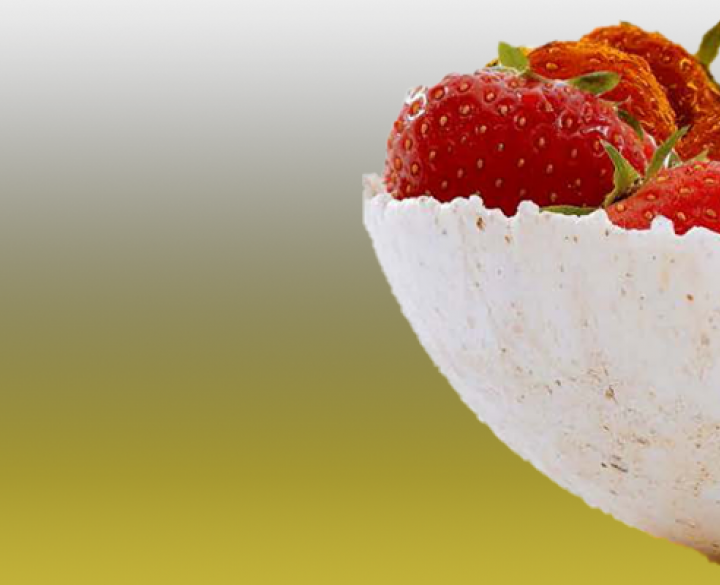Do Eat containers made in Belgium. Plastic-free, fully compostable and edible.
Disposable plastics represent 70% of waste in the ocean. And this plastic in the oceans, it doesn’t degrade quickly. This creates high concentrations of microplastic that are then found in the stomachs of marine mammals and fish. They have even been found in the human digestive system recently…. Since you’re told you need to change!

WO2020/035462 A1
Two young people - Thibaut Gilquin (Master of Design and Architecture) and Hélène Hoyois (master digital art) - patented a development to reduce plastic waste.
Do Eat developed a biodegradable food container made from a dough mixture, without synthetic polymers, plastics or other additives harmful to the composting process or harmful to the soil. The product is said to be competitive with plastic materials in costs, utility and discarding, and can easily replace it.
The dough mixture has a fibre content between 1 and 4 wt.%. Therefore, the food containers are digestible and taste good.
Disadvantage: the shape and dimensions of the cup may change in a rather unpredictable manner when subjected to steaming and baking, which makes it hard(er) to reproduce and seal the recipient.
By using biodegradable/edible food recipients, the food packaging industry is no longer exposed to the problems associated with risk insurance as ingestion of a portion of the utensil will not impart health risks.
The patent
"The present invention relates to a method for producing a biodegradable appliance for containing food. The method comprises the steps of producing a water-based dough and cooking and shaping the dough in a heated mold to produce the appliance in a predetermined shape. The dough is produced by mixing - 30.0 - 70.0 wt. % of vegetable starch, - 20.0-50.0 wt. % of a water based liquid, preferably water, - 1.0-50.0 wt. % of fibers, - the remainder up to 100.0 wt. % being made up by one or more additives - wherein the vegetable starch comprises between 5.0 - 40.0 wt. %, preferably between 10.0 - 30.0 wt. %, more preferably between 10.0 – 25.0 wt. % of potato starch, and 25.0 – 60.0 wt. %, preferably 30.0 - 50.0 wt. %, more preferably 30.0 – 40.0 wt. % of a vegetable starch different form potato starch, the wt% being expressed on the basis of the total dough composition."




